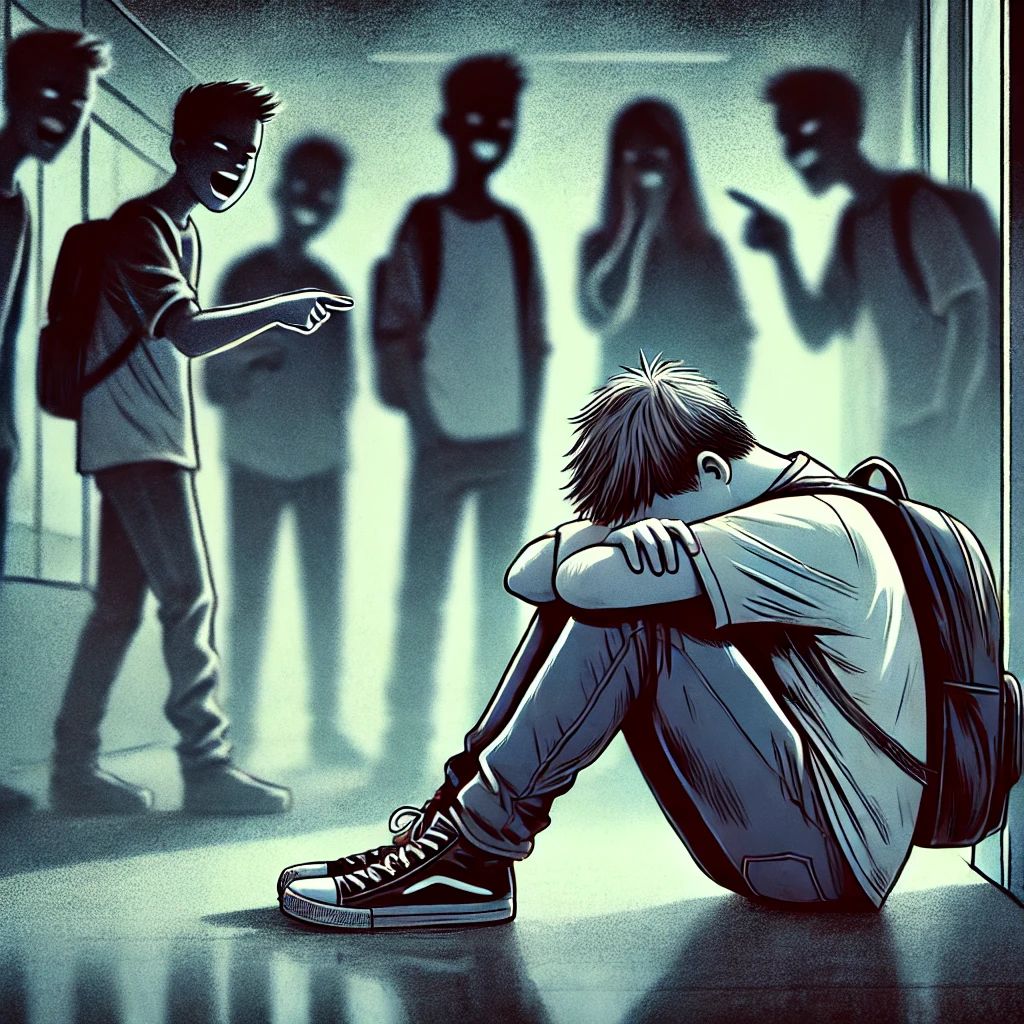Beyond the Hashtags: When Will We Finally Stop Bullying?
Is bullying a new phenomenon in these postmodern times, or did it exist when our grandparents were mere school students? The answer is no—bullying is not new. It has existed for generations.
January 2025 ended with a heart-wrenching tragedy—the suicide of a 15-year-old boy in Kochi, a victim of relentless bullying and racism. The very classmates who should have been his friends turned against him—mocking his skin color, calling him racial slurs, and continuing their cruelty even after his passing. The pain he endured every day was unimaginable. But two questions linger in the minds of those who heard his story:
WHY DID THOSE KIDS SHOW NO REMORSE?
WHY DID THE CHILD REMAIN SILENT?
As adults, our questions often stop here—but are these even the right questions to ask?
WHY AND HOW DOES BULLYING OCCUR?
High school social norms are unpredictable. Bullying often targets students who 'stand out' in any way. It’s not just about being different—sometimes, it's simply about not fitting into the unwritten rules. These rules aren't shaped by students alone; they are reinforced by teachers, staff, and even parents. The “cool kids” set the tone for what is acceptable, influenced by social standards of power and status. If your hairstyle isn’t Gen Z or Gen Alpha-approved, if your fashion choices don’t match the trend, you become an outcast, thrown out of the hierarchy. It could even be something as small as owning the ‘wrong’ stationery.
Tiny infractions have big consequences.
THE PSYCHOLOGY BEHIND BULLYING
Bullies often seek to dominate others because they lack power, attention, or love in their own lives. Hurt people hurt people. By putting others down, they attempt to fill the void in their own hearts. Many do not even understand the pain they inflict—bullying becomes their norm.
But does the problem stop at schools? No, because there is another world—the meta world—where bullying takes a different form. Here, all a bully needs is a comment section and the latest trending cuss words. While cyberbullying isn’t new, its evolution in recent years is alarming. Scroll through meme pages and reaction channels, and you’ll find reels and videos filled with dark humor—jokes laced with slurs, casual humiliation of someone's looks, accent, or background. And when called out? "It’s just a meme, thanthavibe avalle."
Violence, aggression, and cruel jokes in movies and TV shows influence many social media influencers. And so, the cycle begins—a teenager gets harassed, the bullies call it a joke, the victim's pain becomes entertainment. When it all goes too far, people ask the same old questions: Why didn’t anyone stop it? Didn’t the bullies feel remorse?
WHO IS TO BLAME? THE VICTIMS, THE BULLIES, OR US?
SOCIETY'S ROLE: ARE WE ENABLERS?
We preach kindness and empathy, yet the truth is embarrassing: as a society, we accept bullying as a way to secure social power. We uphold a culture that fuels racism, white supremacy, anti-Blackness, misogyny, patriarchy, toxic masculinity, queerphobia, transphobia, fatphobia, ableism, classism, colorism, ageism—the list goes on. Every institution is complicit.
They put up anti-bullying posters, yet when a victim speaks up, they are told to "just ignore it." The hypocrisy is glaring.
Teachers, parents, and mentors often dismiss complaints, telling children to "stop tattling," "solve the problem yourself," or "maybe if you acted differently, this wouldn’t happen to you." Worse still, victims hear adults say:
"Being bullied is just part of growing up."
"You need to stand up for yourself."
"Boys will be boys."
"Don’t be so sensitive."
"They tease you because they like you."
"They’re just jealous."

With every excuse, we teach victims that their pain is normal, just another part of childhood.
THE MENTAL AND EMOTIONAL IMPACT ON VICTIMS
Bullying isn’t just about physical harm—the scars it leaves behind go far deeper. Victims become extremely insecure, constantly trapped in fight-or-flight mode. They feel unaccepted, isolated, angry, and withdrawn. Even after the bullying stops, the fear and insecurity never fully leave them.
Victims of bullying are more likely to develop anxiety and depression. The most common signs include:
Sleep disturbances
Appetite changes
Stomach pain
Emotional distress
Some may develop Obsessive-Compulsive Disorder (OCD), eating disorders, or self-harming behaviors such as cutting, vomiting, pinching, hitting themselves, substance abuse, or excessive exercising.
Many victims experience Post-Traumatic Stress Disorder (PTSD). The trauma of being humiliated repeatedly stays with them long after the bullying ends. Every sound, every laugh, every whisper in the hallway becomes a trigger—a constant reminder of their pain. The scars? They never fade.
The humiliation seeps into adulthood. It shapes the way they act, speak, and even smile. They second-guess every decision, haunted by the weight of their past experiences.
BREAK THE CYCLE; BE THE CHANGE.
The truth is, bullying survives because we allow it to. Because we, as a society, fail to stand up against so-called jokes.
If you witness someone being humiliated—online, in class, in a group chat—call it out. It doesn’t matter where it happens; speak up. Stop the fire before it consumes another life.
Support the victims—not with empty words, not with "stay strong" messages, but with real actions. Listen to them. Check in on them. Remind them that their worth is not determined by someone else’s cruelty.
Breaking the cycle isn’t about a viral campaign or a one-time school assembly. It shouldn’t end as a news column or a trending hashtag.
THE FINAL QUESTION: WHAT HAPPENS NOW?
It might take you four minutes to read this. Then what?
Will we still ask for the bully’s remorse? Will we mourn the victim for a few days until the next trending hashtag distracts us? Until the next life is lost?
Until we find ourselves asking the same questions over and over again: Why did no one stop it? Why didn’t anyone speak up?
Maybe the real question should be—when will we finally stop it?
By
Ayisha Aslam

